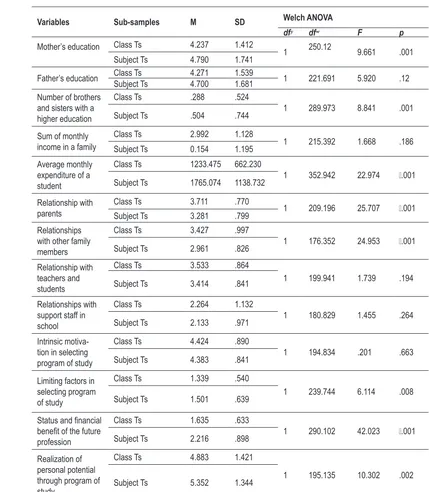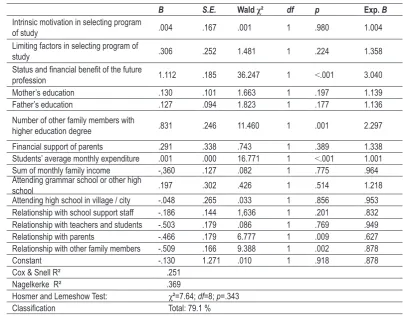DIFFERENCES IN SOCIAL BACKGROUND, STUDY CHOICE MOTIVATION AND HIGHER EDUCATION EXPERIENCE BETWEEN PRE-SERVICE CLASS TEACHERS AND PRE-SERVICE SUBJECT TEACHERS
Full text
Figure



Related documents
The effect of temperature on the properties of flax/PLA composites is more explicitly shown in Figures 15 and 16 where it can be seen that the tensile
by other types of physicians, the responsi- bility for the development, maintenance, and improvement of child health services was clearly assumed by pediatrics when, as a specialty,
The type of data collected was concerned variables associated with conceptual framework such as using sustainable farming practice methods (crop/land rotation, organic, green and
Table 3 shows the results of analysis of variance which indicates that the effect of irrigation treatment on economical yield, the number of umbel and the weight of seeds in the
The genus differs morphologically from the other genera of the subfamily Sciapodinae by the combination of following characters: arista dorsal, arising from base of postpedicel
[ − 2]proPSA: [ − 2]pro-prostate specific antigen; BCR: biochemical recurrence; BMI: Body Mass Index; Bx: biopsy; DRE: digital rectal examination; DT: doubling time; GS: Gleason
Erectile function was measured before and after LDLT using a five-item modified version of the International Index of Erectile Function scale (IIEF-5) and hypogonadism was
The subsequent meetings focused on topics like quantitative indicators in ex-post evaluation of funding schemes and research programmes (Rome, hosted by the INFN – Italian